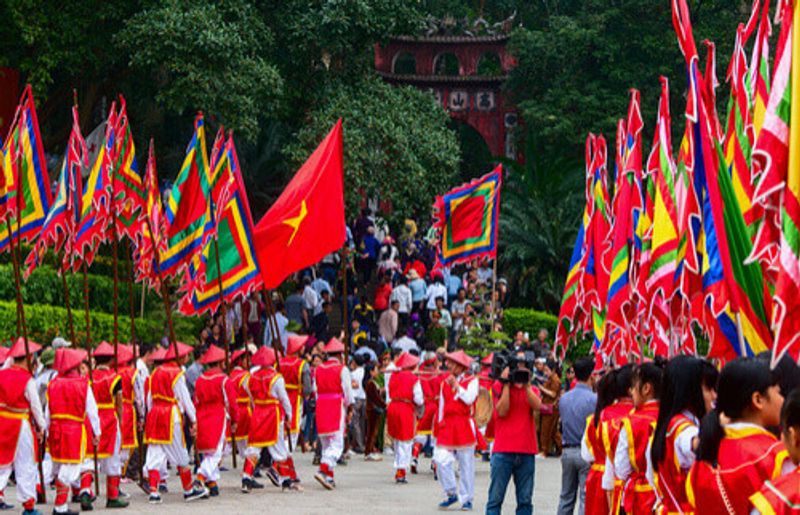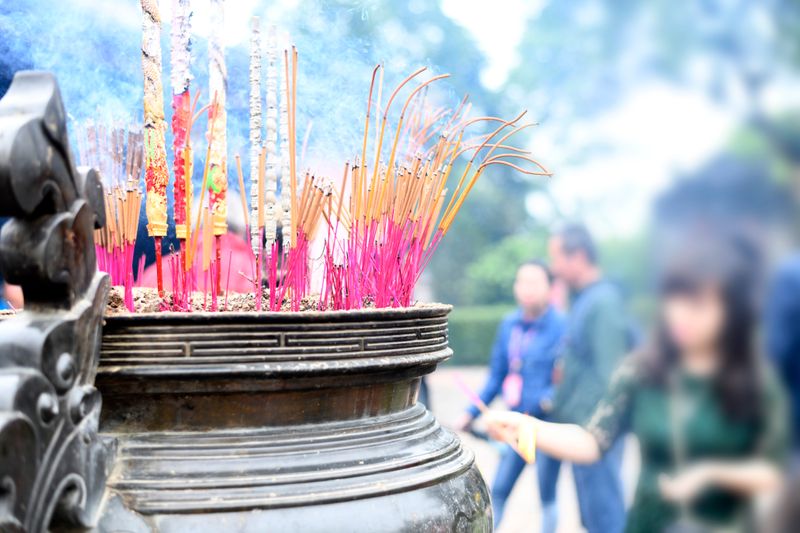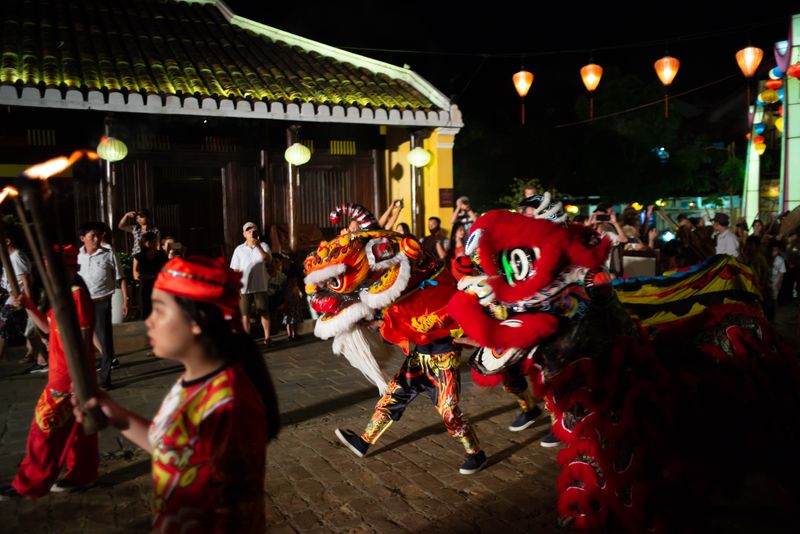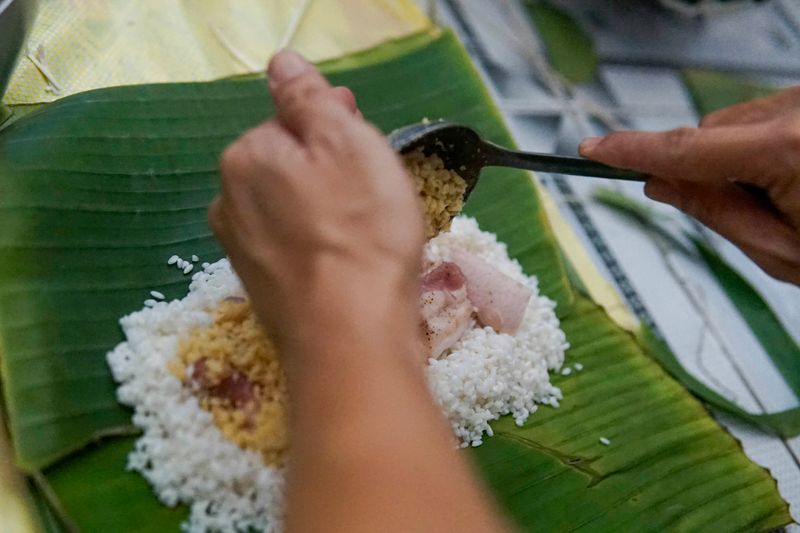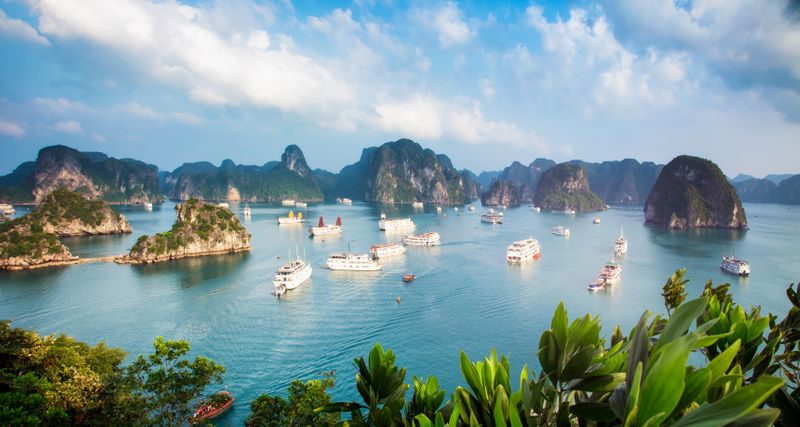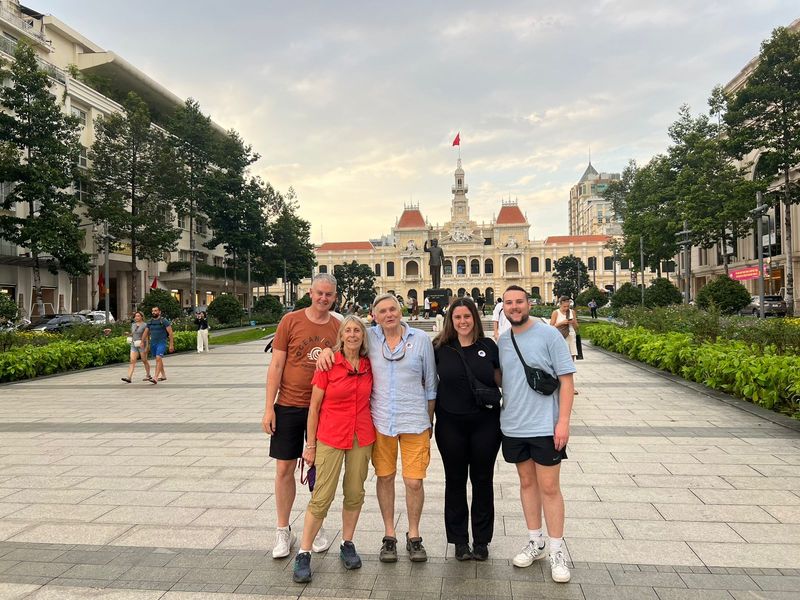In Vietnam, few holidays carry the same cultural weight as the Hùng Kings Festival. Also known as Giỗ Tổ Hùng Vương, this national celebration honours the country’s founding rulers—the Hùng Kings—whose legacy is etched into the landscape and identity of Vietnam. Held every year from the 8th to the 11th day of the third lunar month, with the main event usually falling in early April, the festival turns Phú Thọ province into a hub of vibrant celebration and spiritual reflection.
The worship of Hùng Kings in Phú Thọ was inscribed by UNESCO in 2012 as an Intangible Cultural Heritage of Humanity. Today, the festival isn't just about remembering the past—it's a vivid, living expression of Vietnamese pride and connection to ancestral roots.
The history of the Hùng Kings Festival in Vietnam
Legend has it that the first Hùng King, Hùng Vương, founded the kingdom of Van Lang around 2879 BCE. While archaeological findings suggest the timeline may be closer to 1000–500 BCE, the spirit of this origin story is central to Vietnam’s national narrative. Over 18 successive generations, the Hùng Kings are said to have introduced early forms of agriculture, social organisation, and enduring cultural traditions.
Although the final king was overthrown in the 3rd century BCE, the Hùng dynasty remains a vital symbol of Vietnamese unity and sovereignty. Their contribution is celebrated not just as history but as an enduring source of identity.
Did you know?
The Vietnamese saying "uống nước nhớ nguồn" ("When drinking water, remember its source") reflects the essence of Hùng Kings worship, honouring ancestors with gratitude and reverence.
How the Hùng Kings Festival is celebrated in Phú Thọ
The most significant celebrations take place at the Hùng Kings Temple complex on Nghĩa Lĩnh Mountain, a sacred site nestled in Phú Thọ province. Pilgrims from across the country gather to climb the stone steps leading to ten-tiered temples, each one offering a place to pause and reflect.
The main ceremony unfolds at the Upper Temple at the summit. Government officials, community leaders, and everyday citizens participate in the Hùng Kings ceremony, offering incense, flowers, and symbolic foods like bánh chưng and bánh giầy rice cakes, which represent harmony between heaven and earth.
While Phú Thọ is the focal point, over 1,400 temples nationwide host their own commemorations, ensuring that this is a truly national event.
Did you know?
The Hùng Kings Temple complex is believed to have been built on the site of Van Lang’s original capital.
Traditional rituals of the Hùng Kings Festival
The Hùng Kings Festival is as festive as it is sacred. Alongside the ceremonial offerings and formal rituals, the celebration bursts into life with a mix of folk traditions and communal activities:
- Bronze drum performances that echo Vietnam’s ancient rhythms
- Lion and dragon dances in temple courtyards
- Bamboo swing contests and human chess games
- Folk singing and rice-cooking competitions
Travellers joining the 23-Day Vietnam & Mekong Delta In Depth Small Group Tour can experience the vibrancy of Vietnam’s traditional arts and community celebrations, particularly in destinations like Hoi An and the Mekong Delta.
Did you know?
The square and round shapes of the festival's sticky rice cakes symbolise the earth and sky—an idea rooted in Hùng-era legend.
Food, family and local connection
Food plays an important role during the Hùng Kings Festival, with many dishes reflecting the values of ancestry, hospitality, and regional identity. Carefully prepared recipes are often shared between generations, preserving culinary traditions that are deeply tied to cultural storytelling. Offerings include:
- Bánh chưng (square sticky rice cake with pork and mung bean)
- Bánh giầy (round glutinous rice cake)
- Seasonal fruits, tea, and betel nuts
These foods aren’t simply ceremonial—they're a form of remembrance and gratitude. In many communities, families and neighbours come together in large gatherings to prepare and cook these special items, reinforcing bonds while honouring their heritage.
In some villages, additional dishes like boiled chicken, pickled vegetables, and steamed sticky rice with coconut are served alongside the rice cakes. The inclusion of sweet and savoury elements symbolises a full life, with offerings arranged neatly on banana leaves or lacquer trays. These visual details and flavours aren’t just for display—they reflect hospitality, care, and deep cultural respect passed through generations.
In addition to rice cakes and fruits, regional variations can be found throughout Vietnam. Some households prepare savoury dishes such as boiled chicken or sticky rice with ground peanuts, while others serve soups or grilled pork depending on family tradition. These offerings are carefully chosen to reflect respect and abundance, symbolising wishes for prosperity and peace for both the living and the departed.
Did you know?
Food offerings aren’t just symbolic—they’re also a way for families to connect with their ancestors and express continuity between generations.
The cultural weight of the Hùng Kings Festival
The Hùng Kings celebration reinforces Vietnam’s enduring respect for history. In cities like Ho Chi Minh City, where modern life hums at full speed, you’ll still see local altars and incense offerings that honour ancestral ties.
What makes the festival so culturally significant is how it weaves together shared memory, spirituality, and civic pride. The journey to Phú Thọ, often on foot, isn’t just a pilgrimage—it’s a symbolic act of national remembrance. For young people especially, it’s a chance to take part in something bigger than themselves, deepening their connection to Vietnam’s story.
In a rapidly modernising country like Vietnam, the Hùng Kings Festival is a moment to pause and reflect on heritage. The rituals may be rooted in the past, but their meaning is as relevant today.
Join us on the 16 Day Highlights of Vietnam, Sapa & Nha Trang Premium Small Group Tour, and experience the richness of Vietnam’s cultural identity through guided village treks, encounters with ethnic minority communities in the north, and immersive food and history experiences. These opportunities offer genuine insight into Vietnamese life and heritage, regardless of the season.
Did you know?
Each year, millions of Vietnamese citizens take part in the Hùng Kings pilgrimage by choice, not obligation. The journey is considered an act of gratitude and an important rite of connection to ancestral roots.
Planning your visit during the Hùng Kings Festival
Travelling during the Hùng Kings Festival offers a deeper connection to Vietnam’s past and present. Even if your journey doesn’t align with the festival dates, many Inspiring Vacations tours include visits to temples, local villages, and cultural shows that echo the reverence celebrated at Giỗ Tổ Hùng Vương.
In Hanoi, the Old Quarter reflects ancestral values through everyday rituals like incense offerings and family altars. The stunning Halong Bay, featured on several Inspiring Vacations Vietnam tours, is steeped in folklore that adds cultural depth to its natural beauty. In Hoi An, traditions come to life during the Hoi An Lantern Festival, where glowing lanterns and riverside ceremonies celebrate Vietnam’s heritage in unforgettable ways.
For food lovers, festivals like these are a delicious introduction to Vietnam’s regional cuisine. Curious about what to try first? Our guide on Dining: Vietnam style breaks down everything from must-try street snacks to time-honoured ceremonial meals shared during celebrations like the Hùng Kings Festival.
Highlights of the Hùng Kings Festival
The Hùng Kings Festival brings together spiritual devotion, cultural pride, and community celebration. Here’s a summary of what makes this annual event so significant:
- The timing: Celebrated every year during the third lunar month, typically falling in early April.
- Historical significance: Honours Vietnam’s 18 founding kings and the legacy of the Van Lang kingdom.
- The pilgrimage: A nationwide journey to the Hùng Kings Temple in Phú Thọ province, symbolically regarded as the cradle of Vietnamese civilisation.
- Cultural expression: Features traditional ceremonial offerings, bronze drum performances, folk games, and community feasts that bring the past to life.
- Spiritual depth: Deeply rooted in Vietnamese ancestral worship practices and is officially recognised as an Intangible Cultural Heritage by UNESCO.
- National reach: Commemorated not just in Phú Thọ, but also at more than 1,400 temples across the country, reflecting the event's widespread cultural reach.
- Enduring meaning: A powerful reminder of Vietnamese identity and national unity, bridging ancient history with modern patriotism.
From the incense rituals to the sticky rice offerings and communal processions, the Hùng Kings commemoration stands as one of Vietnam’s most meaningful annual events, rich with tradition and national pride.
Experiencing Vietnam’s rich heritage with Inspiring Vacations
Our Vietnam tours are designed to highlight the stories, flavours, and rituals that define the country. From discovering heritage temples in Hue, to sharing meals in Hoi An, and cruising through limestone cliffs in Halong Bay, each journey offers an insight into the cultural foundations of Vietnam.
Ready to walk in the footsteps of kings and storytellers? With Inspiring Vacations, you’ll explore Vietnam through expertly crafted journeys that honour its living history, rich traditions, and warm hospitality. Discover our full collection of Vietnam tours and start planning your next adventure.
